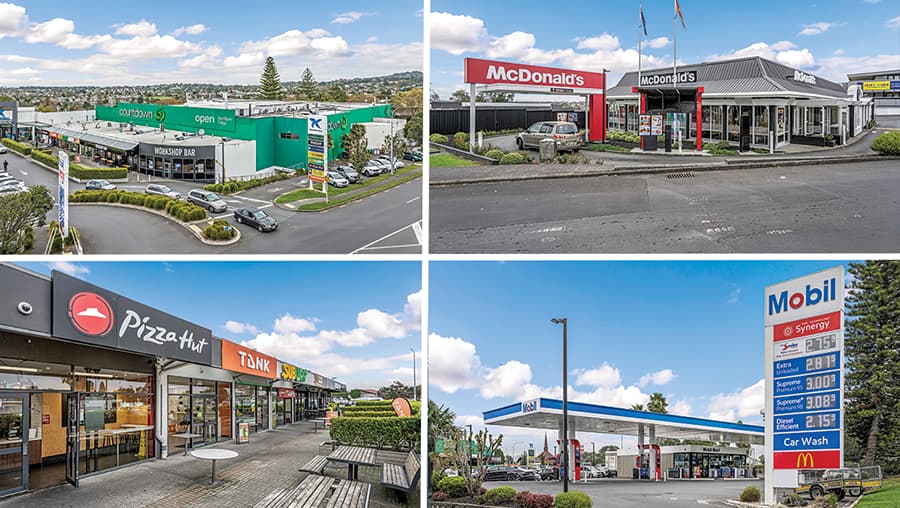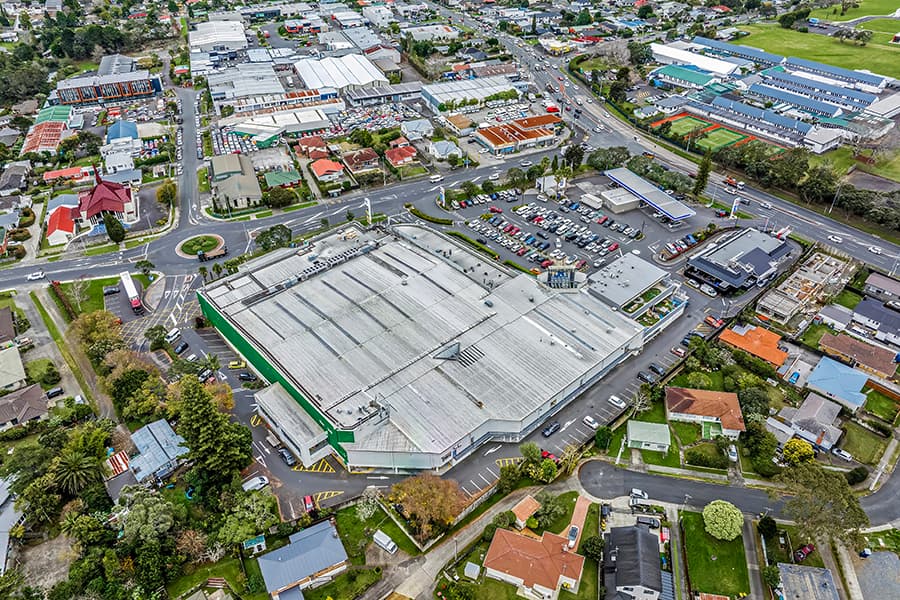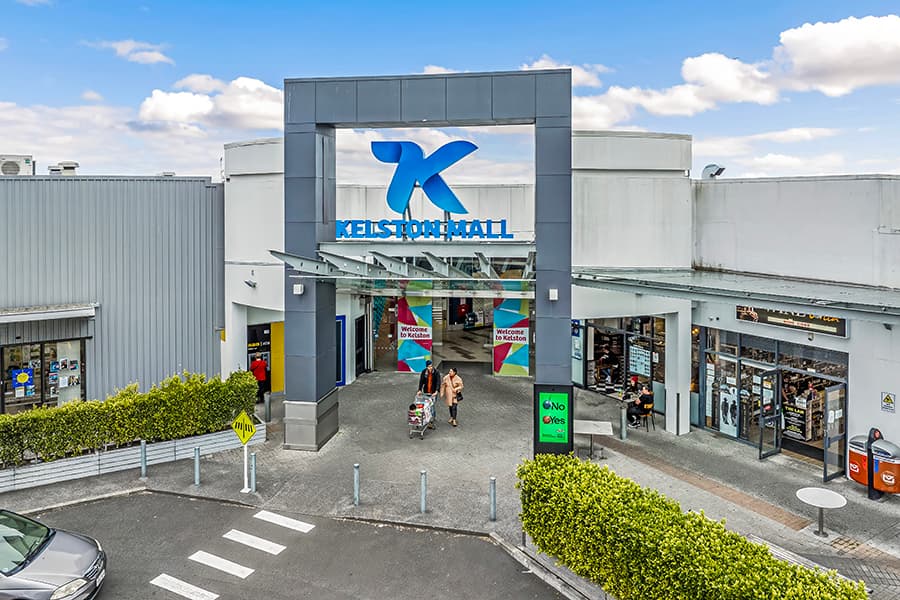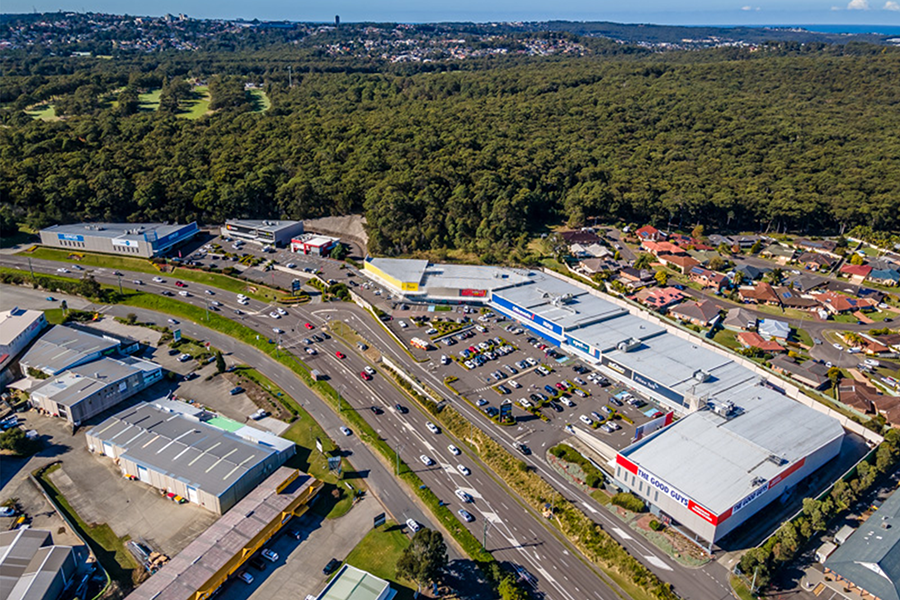A busy neighbourhood shopping centre in the West Auckland suburb of Kelston, with robust tenant covenants and favourable zoning is for sale as its offshore owners’ plans change.
Kelston Mall occupies a substantial freehold 2.1-hectare site with 290 metres of uninterrupted dual prime frontage to West Coast Road and Great North Road in a growing residential catchment.
The centre was originally built in 1964 and has undergone multiple expansions and refurbishments over the years, including the most-recent addition of a childcare centre in 2019, to maintain its status as a diversified and attractive suburban retail and service destination.
Offering 7,729m2 of lettable area and 388 carparking spaces, the centre is anchored by Woolworths Group, McDonald’s and Mobil, complemented by a diverse mix of 30 tenants across medical, food and beverage, childcare, beauty and service sectors. Additional income comes from ATMs, kiosks and rooftop telecommunication networks.
The property returns passing annual net income of $2,339,017 plus OPEX and GST, with about half of this coming from the three major tenants, and with a weighted average lease expiry of 3.4 years (by income).
McDonald’s has exercised an early lease extension out to 2031, while Mobil Oil New Zealand Limited’s current lease expires November 2026, with a 10-year right of renewal remaining.
Kelston Mall is being marketed by Ryan Johnson, David Bayley and Jason Seymour of Bayleys via a private treaty campaign closing 25th July.
Bucking the trend of offshore investors increasingly looking for opportunities in New Zealand, Johnson says Kelston Mall’s owners have now decided to recycle capital back into Asia, after acquiring the property in early 2020.
“Retail centres with scale in core growth locations are attracting solid attention from private capital including family offices, well-resourced individuals and offshore investor entities,” said Johnson. “Kelston Mall is a quintessential neighbourhood shopping centre with a low risk profile, strong total returns with a better yield than many other commercial offerings, diverse occupier profile including big-name listed operators, and an underlying capital growth story.
“On top of this, the Business – Local Centre zoning with its 16-metre or four-storey height limit under the Auckland Unitary Plan is proposed to increase to 21 metres or six storeys under Plan Change 78, which adds another layer of opportunity for future redevelopment of the site to optimise the walkable catchment overlay.”
With available development land in tight supply across Auckland, Johnson says this opportunity in an area with a significant and growing demographic has fundamental advantages.

Kelston Mall is anchored by Woolworths Group, McDonalds and Mobil
“The statistical area containing Kelston is forecast to grow by 36% by 2038, while data from the 2018 Census shows there’s a robust residential catchment of around 420,000 residences within a 10-kilometre radius of Kelston Mall, including those in Henderson, Glen Eden, and Avondale.
“You simply can’t replicate a landholding of this size on a prominent corner with exposure to more than 50,000 cars daily and astute investors will appreciate this.
“We’re in that counter-cyclical real estate spot right now with indications that the OCR tide will turn, interest rates will start to fall and money in the bank will attract lower returns and be recirculated into other avenues including commercial property.”
David Bayley said a recent Bayleys’ delegation to Australia and Southeast Asia confirmed that New Zealand commercial assets are highly sought-after with global private and family office wealth.
“Particularly as there’s an opportunity to buy ahead of the real estate curve with arguably greater value and less market competition to be realised currently.
“Our global real estate partner Knight Frank is noting strong interest in Australian neighbourhood retail assets and this is encouraging for the New Zealand market as we tend to mirror trends across the Tasman, albeit slightly delayed.
“Buyers are looking for well-located options that have sound returns and add-value or upzoning benefits. Kelston Mall has identified future upside waiting to be unlocked and with the high-profile anchor tenants underpinning the value equation, we expect to field good enquiry on the property.”

Kelston Mall occupies a substantial freehold 2.1-hectare site with 290 metres of uninterrupted dual prime frontage
The Infrastructural Commission thinks 49% of the country’s future population growth will occur in Auckland, adding about 648,000 to the city’s population by 2048.
Jason Seymour says Auckland remains the country’s economic powerhouse and the main beneficiary of immigration so naturally, “the smart money is attracted to that”.
“West Auckland is still seen as an affordable place to live and with good transport connections, has the convenience factor being around a 25-minute drive from Auckland’s CBD.
“Kelston’s demographic profile is primarily composed of young families, with a median age of 30 and with 67% of the population having children. This drives the popularity of Kelston Mall as the go-to neighbourhood shopping centre – heightened when you consider the cost of living and fuel prices which support spending close to home.
“Projected residential growth will further stimulate local economic activity and service retail should benefit hugely.”





















